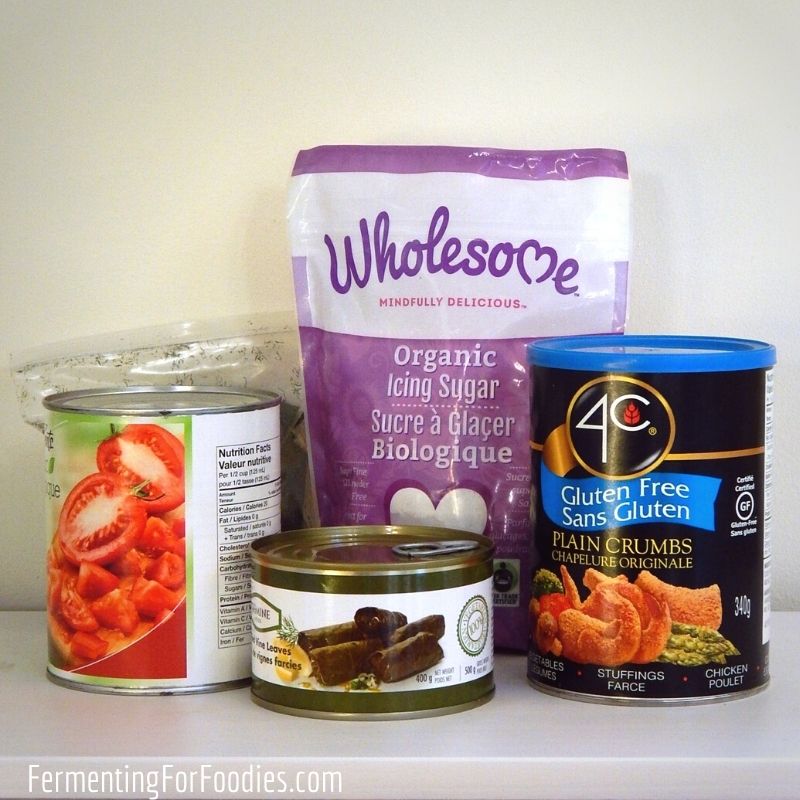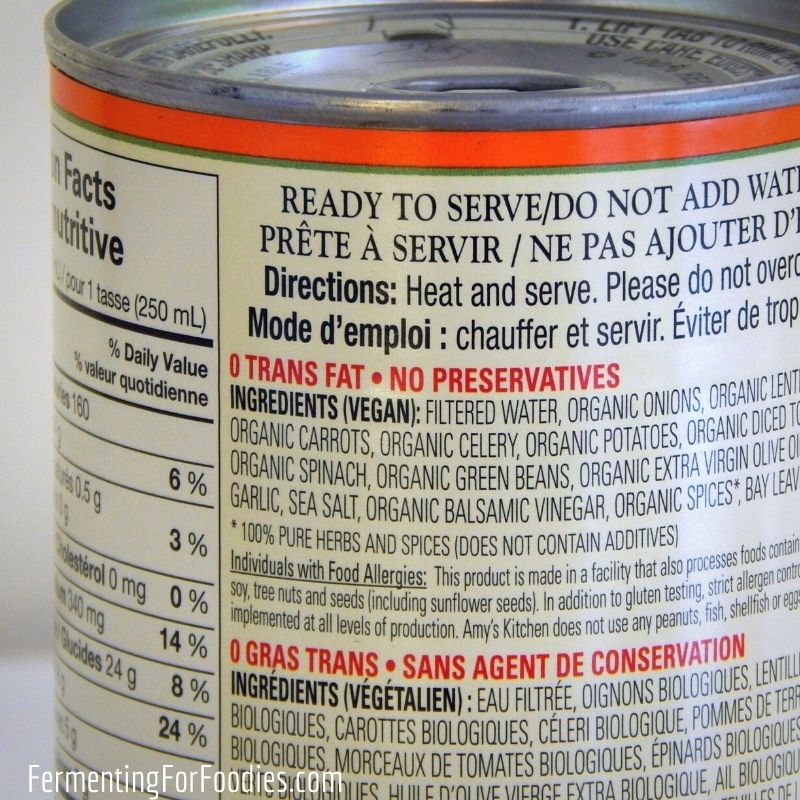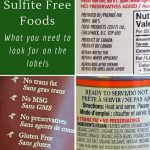There are a number of different preservatives that are added to food to increase the shelf-life and prevent browning and spoiling. Here’s everything you need to know about preservatives like sulfites in food.

Why preservatives are used?
The modern food industry owes a lot to the development of preservatives. They are used in practically every type of packaged food. There are a number of natural, organic preservatives, including:
- Salt
- Sugar
- Acids: (vinegar, vitamin C, citric acid)
- Hops (the primary reason it is added to beer)
- Alcohol
- Smoke (think of cured meats)
However, there are also a number of chemical compounds that are added to food. The focus of this article is on sulfites, however, the information will also pertain to all chemical preservatives.
Here are the primary reasons why preservatives are added to food:
- To prevent contamination by mold, bacteria, or yeasts.
- Keep the flavor fresh.
- Prevent oils from going rancid.
- Stop oxidation and browning.
- Help maintain the texture.
Why should you care about sulfites in food?
There are so many different kinds of preservatives. However, sulfites are very common because they act as an antimicrobial (prevents mold, bacteria, and yeast growth) as well as an antioxidant (prevents browning).
Here are the main reasons why should care about sulfites and other preservatives in processed food:
- Health effects: All preservatives are approved for human consumption, and they are generally used in very small amounts. However, there is some evidence of negative health effects from chemical preservatives. Besides, processed foods are generally not as healthy as whole foods because they usually are also high in sugar, fat, and salt. So it’s best to view processed foods as a treat rather than a staple.
- Allergies: Sulfite allergies and intolerances are fairly common. My son’s sulfite allergy is why I know so much about sulfites. Symptoms can include eczema, digestive issues, or asthma-like breathing problems. (Estimates are that about 10% of people with asthma actually have a sulfite allergy. That rate goes up to 20% in steroid-dependent asthmatics).
- Fermentation: Sulfites are added to food to prevent bacteria and yeast from growing. So if you’re interested in making fermented foods, it’s important to avoid sulfites!

How do you know if there are preservatives in processed food?
I learned all about sulfites when my son was diagnosed with a sulfite allergy. The allergist sent me home with a long list of foods that he had to avoid and a short list of processed foods that he could eat. Her list even included where we could buy them, it was that short!
Here’s the tricky thing about sulfites:
- They are naturally found in a number of foods.
- Neither the USDA nor the Canadian Food Inspection Agency requires labeling of sulfites when it’s added in small amounts (<10 ppm).
- So the only way to avoid added sulfites in processed foods is to look for No Preservatives or Preservative Free on the label. Something labeled as Natural or Made with Organic Ingredients is not necessarily sulfite-free.
Here’s a list of common high-sulfite foods:
- Anything in the bulk section that isn’t labeled preservative-free, especially coconut and dried fruit.
- Potato products, like potato chips, instant potatoes, or potato starch.
- Packaged bread and baked goods, and “baked-fresh in-store” baked goods that aren’t mixed in-house (so frozen croissants and tubs of muffin batter).
- “Freshly baked” items from a grocery store or restaurant chain. These are usually mixed in a central location, then kept fresh with added sulfites until they are “fresh baked”.
- French fries from any restaurant that doesn’t slice their own fries daily.
- Spices, packaged sauces, and lemon juice.
- Hard cider (it’s how they prevent it from turning into wine). However, it is possible to make your own cider without sulfites!
- Deli meats and sausages.
Here is a list of foods that naturally contain sulfites:
- Fresh grapes, which is why even no added sulfites wines may contain sulfites.
- Iceberg lettuce
- Mushrooms
- Most kinds of vinegar, especially wine vinegar.
There’s a lot more on the list… but it varies depending on individual sensitivity. If you think you have sulfite sensitivity, I recommend talking with your doctor.



Leave a Reply